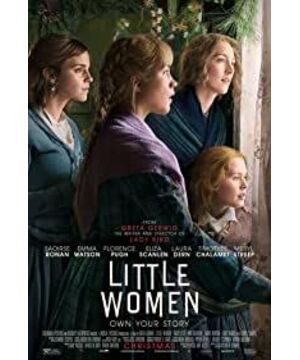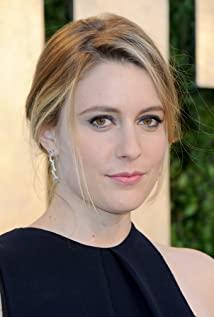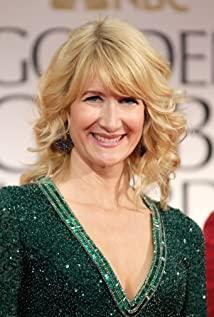I haven't read the original book. It's the first time to see Little Women, and it's quite interesting. First of all, we must praise the cast of the film. The appearance is full of marks. The Meg played by Emma is really sweet, and her acting skills are also online. Every character has a distinct personality. Secondly, after watching this film, I really envy children with siblings, and of course I know that raising multiple children is a heavy burden for families with poor conditions.
The film uses two timelines to intersperse the narrative, and it has a magical effect in some clips, which is very distinctive. It just feels a little more frequent, and the actors are from the same batch. Sometimes it is necessary to distinguish different timelines by the background color and hair and clothing, which can make people a little confused for a while.
In terms of character creation, although the characters in the play have various shortcomings, such as Meg's vanity, Jo's conceit and impulsiveness, and Laurie's arrogance, they all make me hate them. Their essence is very good, who is not Came here like this. The most loving in the film are the generous and kind-hearted neighbor grandpa and the little angel Beth.
As for the emotional line of the film, I don't feel that the ending is very good. The development of the relationship between Jo, Amy and Laurie and the change of attitude are a bit abrupt, which may be limited to the length of the film. In addition, some small details in it are very interesting, such as Amy's eyes and behavior when he met Laurie for the first time, and he was full of love; and Jo called Laurie Teddy, the self-esteem of boys is actually very heavy, this kind of I don't think normal boys would accept it if it wasn't for the girl I liked the most. I understand that Laurie would prefer Amy's name to him.
Finally, some thoughts on women's freedom and marriage. In my opinion, the union of marriage is mainly due to the following factors, realistic factors (economy, status, family reproduction), emptiness (spiritual emptiness, emptiness of life value) and love. These three factors may also exist at the same time. The proportions are different. In the past, because of difficult conditions, it was more for practical reasons. The poor lived together, the rich pursued the right match and the family was prosperous, and the ambitious people pursued class transition through political marriage.
Now that living conditions have improved, for those who pursue real economic freedom and personality independence, they will naturally not combine because of the first two factors, so the following is the most ideal situation, a marriage combined for love.
Although Jo's self-report in front of her mother was very moving, it actually exposed her problems. She said she chose not to marry out of female freedom, but the real problem was that she didn't love Laurie at all. It is only necessary to think about marriage if you love someone first. Conversely, if Jo accepts and chooses marriage, he can become love Laurie, obviously impossible. Jo doesn't love each other, but she selfishly uses "loneliness" as a starting point to try to recover the love she wisely declined when she is at a low point in her life. I really don't know what to say. Love is also an ability to be learned. Jo obviously doesn't have this ability. A person doesn't know love at all, and he doesn't know how to love. So why do you want to get married? Then why do you choose marriage?
Only narrow, dogmatic feminism needs to express independence and freedom by resisting love and marriage. The true freedom of women is not that all girls live in one way, but that all girls have the choice to live the life they really want.
View more about Little Women reviews











